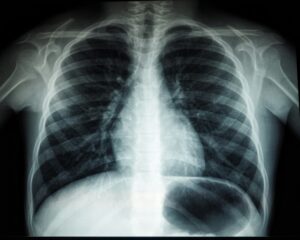As the cost-of-living crisis bites even harder and concerns over the lack of clarity on support for energy bills mounts, new figures show reducing consumption is vital for more than mere economic reasons.
Heating now accounts for 14% of UK carbon emissions, according to research by the influential MP committee, Business, Energy and Industrial Strategy.
The figure points to even more urgent reasons for the public to cut back on overall use, which is already a priority in a bid to keep bills affordable going into winter. The government’s recently announced energy price cap, which will mean the average household is unlikely to pay more than £2,500 for gas and electricity, was initially set to run through to 2024 but will now end after six months, sending households and businesses into a renewed panic as the new Chancellor, Jeremy Hunt, failed to explain how continued support will be delivered after that time.
According to off-grid gas specialist, Flogas, heat pumps are an increasingly popular solution, but a recent Energy and Utilities Alliance suggests installation is not practical in 54% of UK residences. Poor insulation, a lack of low-temperature radiators (necessary for heat pumps to work efficiently) and the space needed for the technology have all contributed to a situation where many people cannot practically make the switch even if they could afford the relatively high cost, which can be anywhere between £7,000 and £14,000, although the Boiler Upgrade Scheme can provide grants of up to £5,000.
Instead, those living in off-the-grid properties responsible for sourcing their own energy may find that changing to liquefied petroleum gas is a far more suitable option. However, even the much-touted bio-LPG, which is set to hit the market imminently, raise serious concerns among environmentalists keen to see fossil fuels abandoned for genuine renewable sources in a bid to slow the climate crisis and improve air quality.
Image: Alex Perz


















[…] In addition, they argue electric heat pumps should be installed alongside insulation to decarbonise residential heating, which is responsible for around 14 per cent of the UK’s carbon emissions. […]
About radiators and heat pumps, I just checked online. I found this: ‘You CAN use a heat pump with standard radiators. Gas boilers are designed to work efficiently at temperatures between 60-65 degrees. Heat pumps are able to reach these temperatures, however, they are more efficient at around 40-45 degrees. If you want to use a heat pump with your current radiators, a heating engineer can tell you if your radiators are large enough. In many UK homes they already are. Correct sizes weren’t always calculated when gas or oil central heating radiators were first installed, so it’s common for people to already have ‘oversized’ radiators’. The heat pump machinery need not take up a lot of space and is getting smaller all the time. More home insulation is something we ought to be doing anyway. Unlike biomass boilder and stoves, heat pumps do not emit CO2 whilst running, nor do they make fine particulate air pollution. They can provide hot water for the kitechen and bathroom too. I hope more small-scale heat pumps are now being made and fitted here in the UK. Are they?
Excuse me for asking, but where you say ‘ Heating now accounts for 14% of UK carbon emissions’. I assume you mean CO2? And isn’t the BEIS a government department/ministry rather than an MP committee? And where you say ‘heating’, what kind of heating? I know biomass and wood give off CO2 when burned, as does gas/propane, so surely heat pumps need to be installed instead wherever possible (but not akwsyd possible, I know, as you said). Presumably oil is right out now. How does that 14% breakdown for the various heating sources? And what about the other emissions? Gas (and electric radiators) is cleaner by far when it comes to fine particulate air pollution, so tis a shame it gives off plenty of CO2. Families realluy do need help with insulation. And why are modern houses built with such thin walls?